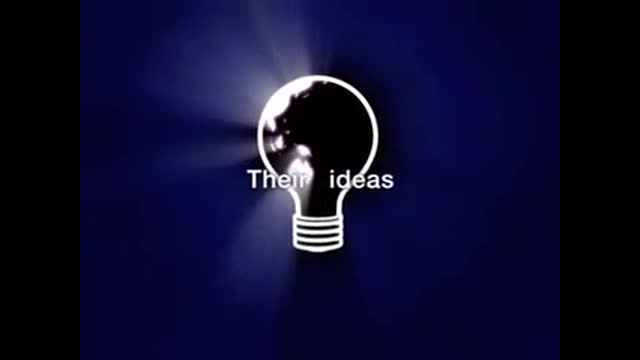An Explorer-in-Residence at the National Geographic Society, Wade Davis holds degrees in anthropology and biology, and received his Ph.D. in ethnobotany, all from Harvard University. Mostly through the Harvard Botanical Museum, he spent more than three years in the Amazon and Andes as a plant explorer, living among fifteen indigenous groups in eight Latin American nations while making some 6,000 botanical collections. Davis' work later took him to Haiti to investigate folk preparations implicated in the creation of zombies, an assignment that led to his writing "Passage of Darkness" and "The Serpent and the Rainbow," an international bestseller which appeared in 10 languages and was later released by Universal Studios as a motion picture. His other books include "Penan: Voice for the Borneo Rain Forest," "Nomads of the Dawn," The Clouded Leopard," "Shadows in the Sun," and "One River," which was nominated for the 1997 Governor General's Literary Award for Nonfiction, Canada's most prestigious literary prize. His most recent book is "Light at the Edge of the World." A native of British Columbia, Davis is a citizen of both Canada and Ireland. He has worked as a guide, park ranger and forestry engineer, and has conducted ethnographic fieldwork among several indigenous societies of northern Canada. He has published scientific and popular articles on subjects ranging from Haitian voodoo and Amazonian myth and religion to the global biodiversity crisis, the traditional use of psychotropic drugs, and the ethnobotany of South American Indians. Davis has written for "National Geographic," "Newsweek," "Fortune," "Conde Nast Traveler," "The New York Times," "The Wall Street Journal," and several other international publications. His photographs have been widely published, and his research has been the subject of more than 600 media reports and interviews in the United States and Canada and throughout Europe, Japan and South America. Recently Davis' work has taken him to Peru, Borneo, Tibet, the high Arctic, the Orinoco Delta of Venezuela and northern Kenya. An Honorary Research Associate of the Institute of Economic Botany of the New York Botanical Garden, he is a Fellow of the Linnean Society, Fellow of the Explorer's Club, Fellow of the Royal Geographic Society and Executive Director of the Endangered People's Project. Davis is also a board member of the David Suzuki Foundation, Future Generations, Cultural Survival and Rivers Canada, all NGOs dedicated to conservation-based development and the protection of cultural and biological diversity. He also serves on the board of the Banff Centre, Canada's leading institution for the arts. Davis was the host and co-writer of "Earthguide," a thirteen-part television series on the environment which aired on the Discovery Channel. Other television credits include the award-winning documentaries "Spirit of the Mask," "Cry of the Forgotten People," and "Forests Forever."
An Explorer-in-Residence at the National Geographic Society, Wade Davis holds degrees in anthropology and biology, and received his Ph.D. in ethnobotany, all from Harvard University. Mostly through the Harvard Botanical Museum, he spent more than three years in the Amazon and Andes as a plant explorer, living among fifteen indigenous groups in eight Latin American nations while making some 6,000 botanical collections. Davis' work later took him to Haiti to investigate folk preparations implicated in the creation of zombies, an assignment that led to his writing "Passage of Darkness" and "The Serpent and the Rainbow," an international bestseller which appeared in 10 languages and was later released by Universal Studios as a motion picture. His other books include "Penan: Voice for the Borneo Rain Forest," "Nomads of the Dawn," The Clouded Leopard," "Shadows in the Sun," and "One River," which was nominated for the 1997 Governor General's Literary Award for Nonfiction, Canada's most prestigious literary prize. His most recent book is "Light at the Edge of the World." A native of British Columbia, Davis is a citizen of both Canada and Ireland. He has worked as a guide, park ranger and forestry engineer, and has conducted ethnographic fieldwork among several indigenous societies of northern Canada. He has published scientific and popular articles on subjects ranging from Haitian voodoo and Amazonian myth and religion to the global biodiversity crisis, the traditional use of psychotropic drugs, and the ethnobotany of South American Indians. Davis has written for "National Geographic," "Newsweek," "Fortune," "Conde Nast Traveler," "The New York Times," "The Wall Street Journal," and several other international publications. His photographs have been widely published, and his research has been the subject of more than 600 media reports and interviews in the United States and Canada and throughout Europe, Japan and South America. Recently Davis' work has taken him to Peru, Borneo, Tibet, the high Arctic, the Orinoco Delta of Venezuela and northern Kenya. An Honorary Research Associate of the Institute of Economic Botany of the New York Botanical Garden, he is a Fellow of the Linnean Society, Fellow of the Explorer's Club, Fellow of the Royal Geographic Society and Executive Director of the Endangered People's Project. Davis is also a board member of the David Suzuki Foundation, Future Generations, Cultural Survival and Rivers Canada, all NGOs dedicated to conservation-based development and the protection of cultural and biological diversity. He also serves on the board of the Banff Centre, Canada's leading institution for the arts. Davis was the host and co-writer of "Earthguide," a thirteen-part television series on the environment which aired on the Discovery Channel. Other television credits include the award-winning documentaries "Spirit of the Mask," "Cry of the Forgotten People," and "Forests Forever."
The Wayfinders: Why Ancient Wisdom Matters in a Modern World
Into the Silence: The Great War, Mallory and the Conquest of Everest
The Sacred Headwaters: The Fight to Save the Stikine, Skeena, and Nass
River Notes: A Natural and Human History of the Colorado
2 recomendar Wade
Publica tu propia reseña verificada cuando contrates a este altavoz a través de eSpeakers.
University of Western Ontario
In situ
S., University of Western Ontario
Wade was incredible, and an excellent choice of speaker. Thanks for putting the event on. It was fantastic!
University of Western Ontario
In situ
S., University of Western Ontario
Wade Davis was an excellent choice. Bring more interdisciplinary speakers.



